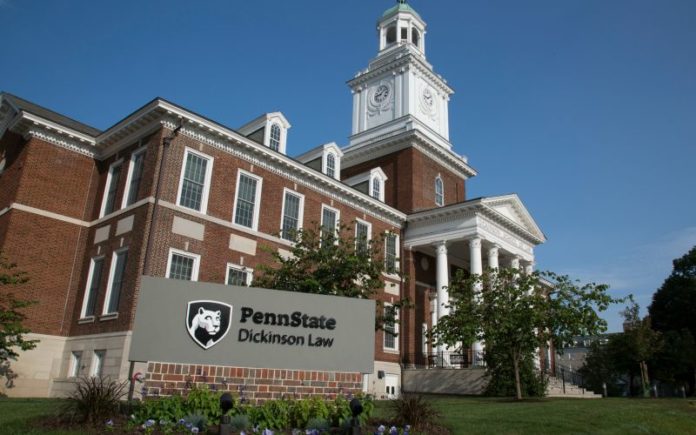Penn State Law School Ranking

Why Choose Penn State Law School?
Penn State Law School is a great choice for students looking for a top-tier law school. Here are some reasons why:
Outstanding Faculty
Penn State Law School is home to distinguished faculty members who are experts in their respective fields. The faculty members are dedicated to providing students with a comprehensive legal education that prepares them for a successful career in law.
Strong Alumni Network
Penn State Law School has a strong alumni network that spans across the country and around the world. The alumni network provides students with access to a wide range of career opportunities and professional connections.
Comprehensive Curriculum
The curriculum at Penn State Law School is designed to provide students with a comprehensive legal education. The curriculum includes courses in various areas of law, including corporate law, criminal law, environmental law, and international law.
Rankings and Recognition
Penn State Law School has been recognized as one of the top law schools in the country. Here are some of the school's rankings:
U.S. News & World Report Ranking
According to the U.S. News & World Report, Penn State Law School is ranked #64 in the country. The school is also ranked #21 in Environmental Law and #23 in Intellectual Property Law.
Princeton Review Ranking
The Princeton Review has ranked Penn State Law School as one of the Best Law Schools in the Country.
American Bar Association Accreditation
Penn State Law School is accredited by the American Bar Association (ABA). This is a testament to the school's commitment to providing a quality legal education to its students.
Pros and Cons of Penn State Law School
Pros:
- Outstanding faculty
- Strong alumni network
- Comprehensive curriculum
- Accredited by the ABA
Cons:
- High tuition fees
- Located in a small town
- Less diverse student body compared to other law schools
FAQ
1. What is the application process for Penn State Law School?
The application process for Penn State Law School involves submitting an application form, transcripts, resume, personal statement, letters of recommendation, and an application fee. The school also requires applicants to take the LSAT exam.
2. What is the student-to-faculty ratio at Penn State Law School?
The student-to-faculty ratio at Penn State Law School is 10:1. This ensures that students receive individual attention from faculty members and have access to personalized learning opportunities.
3. Does Penn State Law School offer scholarships?
Yes, Penn State Law School offers scholarships to qualified students. The school offers both merit-based and need-based scholarships to help students finance their legal education.
4. What kind of career services does Penn State Law School offer?
Penn State Law School offers a wide range of career services to its students. The school has a dedicated Career Services Office that provides students with access to job postings, career counseling, resume and cover letter reviews, and mock interviews.
